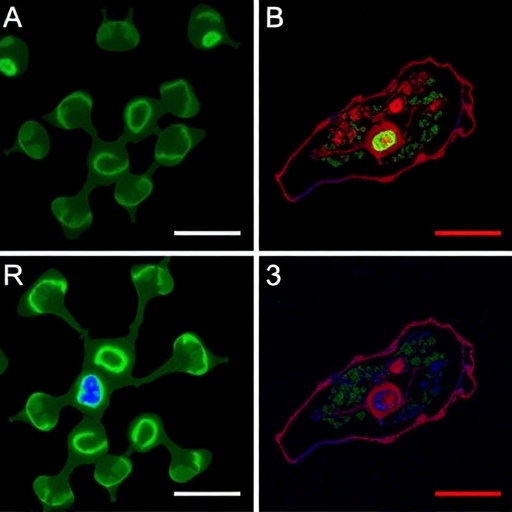AURORA, Colo. (June 19, 2017) – Researchers at the University of Colorado Anschutz Medical Campus and the Baylor College of Medicine will join with Guatemalan investigators in a major study examining the clinical outcomes of children infected with the Zika virus after being born, focusing on long-term brain development.
"We now know the severe effects of Zika in the fetus and the unborn child if the mother gets the infection during pregnancy," said Edwin Asturias, MD, co-principal investigator of the study and director of Latin American Projects at the Center for Global Health at the Colorado School of Public Health. "But if the virus is able to affect the developing brain of an infant or a child, this will have enormous consequences to a generation of children in areas where the virus has spread."
The study, funded by the National Institutes of Health, has been approved by the Ministry of Health in Guatemala and will take place in the rural southwestern coast of that country.
Along with the Zika virus, the region is also endemic for the dengue and chikungunya virus transmitted by the same mosquito that carries Zika.
"We are enrolling infants in the first year of life and children up to 5 years of age who will be followed over one year to see if they become infected with Zika virus, and then we will be looking at the effects of the infection in the infants' and children's neurodevelopment," said Dr. Flor M. Muñoz, associate professor of pediatrics in the section of infectious diseases at Baylor and principal investigator of the study. "We will look for neurologic or neurodevelopmental effects specifically, including effects on hearing and eye problems, because we know that the virus has the potential to cause central nervous manifestations."
Zika virus has been known to affect babies in utero when the mother is infected during pregnancy, but little is known about what happens when infants are infected in early life, Muñoz said.
"Our concern is that a developing brain in early life can be impacted significantly," she said. "It's an important question to address not just for children that live in the endemic areas, but also for children who travel to these areas."
Recruitment for the study will take place through a clinic created by the University of Colorado's Center for Global Health in Guatemala. The goal is to follow 500 infants and their mothers for one year to determine if they become infected by the Zika virus. Neurologic exams and age-appropriate neurodevelopmental testing will be run for the duration of the study to identify changes in children infected with Zika virus.
Researchers will also be enrolling 700 children between the ages of 1 and 5 years, including 300 children known to have been exposed to dengue or Zika viruses while participating in a previous dengue study, and 400 who are siblings of the infants in this study. They will be tested periodically and evaluated for symptoms of flavivirus-like illness to determine if they have been infected by Zika, dengue or chikungunya viruses. Investigators will monitor serial neurologic examinations and developmental milestones in the children to determine if the Zika virus infection is associated with any neurologic or developmental changes.
Muñoz and Asturias will collaborate with colleagues from the Fundacion para la Salud Integral de los Guatemaltecos (FUNSALUD) clinic in Guatemala. The clinic, affiliated with the Colorado School of Public Health and Children's Hospital Colorado, is led by Dr. Antonio Bolaños. It has a full complement of local investigators, nurses and laboratory technicians along with Emory University's Vaccine Treatment and Evaluation Unit (VTEU) research laboratory led by Dr. Mark Mulligan.
Neurodevelopmental testing will be conducted by three local psychologists under the leadership of Dr. Amy Connery of Children's Hospital Colorado in Aurora, Colo. The study will last three years and results will be reported throughout the study. More information can be found at the NIH Zika website.
###
The trial is sponsored by the National Institute of Allergy and Infectious Diseases, part of the National Institutes of Health, contract number HHSN272201300018I.
Media Contact
David Kelly
[email protected]
303-503-7990
@CUAnschutz
http://www.ucdenver.edu
############
Story Source: Materials provided by Scienmag




